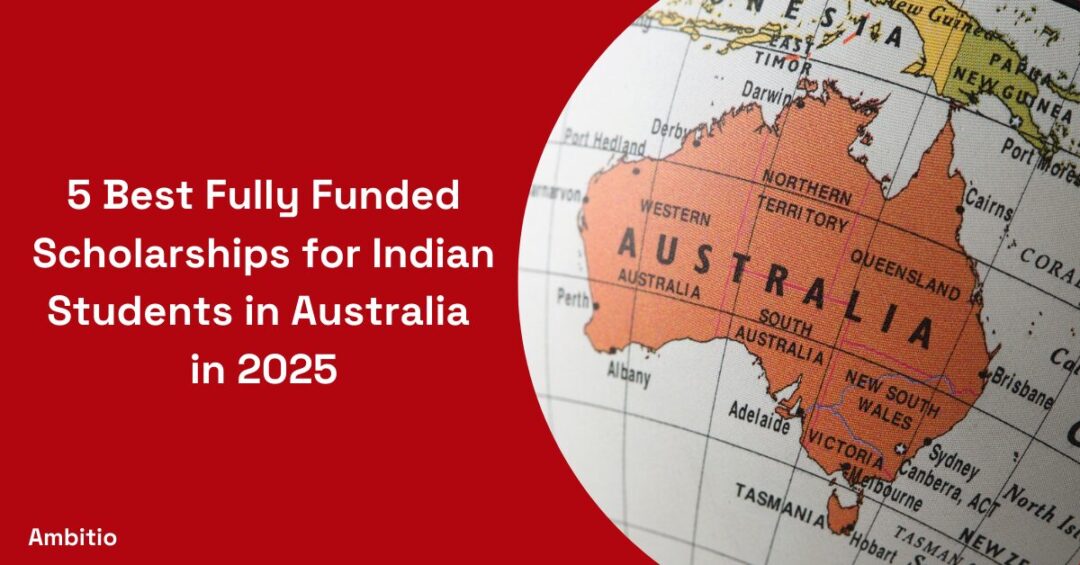1 September 2024
11 minutes read
Top 10 Engineering Colleges in Australia 2024: A Comprehensive Guide to Bachelor of Engineering Degrees

Key Takeaways:
- Courses start May 6, 2024, plan accordingly.
- Top universities offer globally ranked programs.
- Specializations match Australia’s industrial needs.
- Scholarships widely available for students.
- Graduates enjoy high job prospects and salaries.
In the lead-up to 2024, Australia now cements its status as a dream destination for any engineering student. While the University of Sydney and Monash University have top global university rankings, students from all over India and the world are preparing themselves for May 6, 2024. Whether you want to sign up for a generic bachelor’s in mechanical engineering or commit to a narrow master’s in telecommunications, the selection of these courses at the country’s best universities is diverse and engaging.
Overview of Engineering Courses in Australia
What is Engineering?
Engineering integrates scientific principles with practical applications to develop innovative solutions across various sectors. This discipline involves:
- Designing products including microscopic electronic devices and structures capable of supporting multiple tons
- Creating permanent infrastructure resilient to the passage of time and the course of natural disasters.
- Preserving and extending the life cycles of existing systems.
- Using competency in math and science to solve problems with ingenuity and push the limits of what is technologically possible
More importantly, engineers help to serve people’s needs by building safe houses, finding new energy sources, designing medical instruments, and significantly more.
Why Study Engineering in Australia?
The reasons for considering studying an engineering course in Australia are highly persuasive:
- Australian Engineering courses are internationalized and internationally recognized.
- Research conditions and modern research facilities for students.
- Potential employability post studies: Graduates have more potential future employment prospects after completing their studies, as they have industry skills, practical hands-on experience, and can adapt to any environment. This is also fueled by the fact that most of the courses have work placements or internships.
- World Ranking: The University of Sydney and the UNSW appear on the QS World University Rankings for engineering and technology, showing that engineering courses in Australia are of global quality.
FACT
Australia is home to 7 universities in the top 100 for engineering .
List of Top Universities for Engineering in Australia
Australia boasts numerous top-tier universities that offer exceptional engineering programs, each with unique strengths and specialties:
University of Melbourne
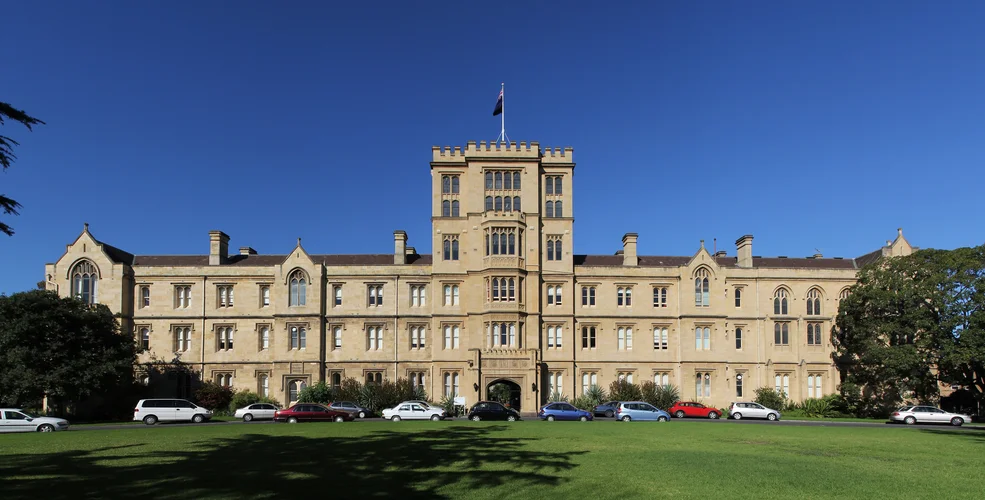
- Rank: 1 in Australia for Engineering
- Courses Offered: Civil, Mechanical, Electrical, Biomedical Engineering
- Eligibility: High school diploma in math and science, GPA of 3.0 or above
- IELTS Required: Yes, a minimum score of 6.5
- Acceptance Rate: 70%
- Average Cost: AUD 40,000 per year
- Location: Melbourne, Victoria
- Hostel Provided: Yes
- Average CTA: AUD 50,000 per year
- ROI: High
- GRE Required: No
- Indian Students Allowed: Yes
- Scholarships: Available for high-achieving students
- Student Visa Required: Yes, subclass 500
- Description: Known for its comprehensive engineering curriculum and strong international student support system.
Australian National University (ANU)
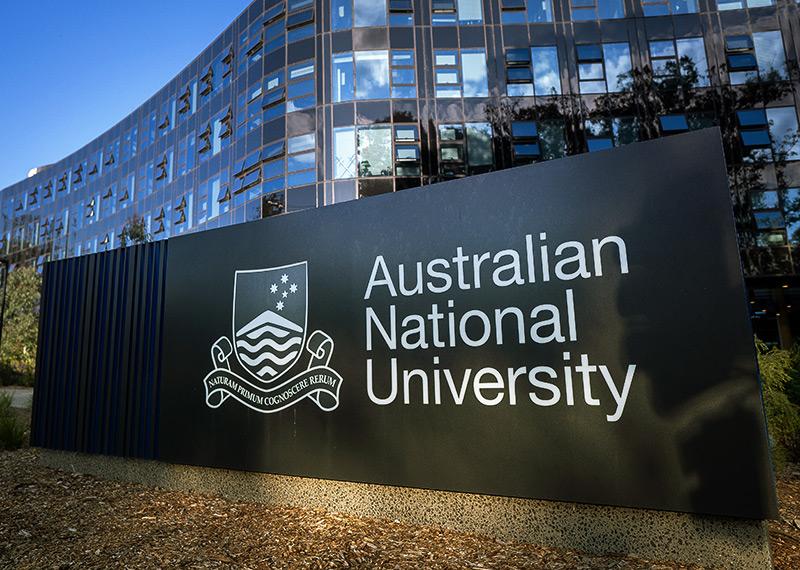
- Rank: 2 in Australia for Engineering
- Courses Offered: Renewable Energy, Systems Engineering, Software Engineering
- Eligibility: Bachelor’s degree in a related field with a 2:1 or above
- IELTS Required: Yes, a minimum score of 6.5
- Acceptance Rate: 55%
- Average Cost: AUD 38,000 per year
- Location: Canberra, ACT
- Hostel Provided: Yes
- Average CTA: AUD 45,000 per year
- ROI: Very good
- GRE Required: No
- Indian Students Allowed: Yes
- Scholarships: Several scholarships available specifically for international students
- Student Visa Required: Yes, subclass 500
- Description: ANU boasts world-class research facilities and a global reputation in engineering education.
University of New South Wales (UNSW)

- Rank: 3 in Australia for Engineering
- Courses Offered: Chemical Engineering, Photovoltaic Engineering, Petroleum Engineering
- Eligibility: High school certificate, GPA of 3.0 or above, prerequisite subjects
- IELTS Required: Yes, a minimum score of 6.5
- Acceptance Rate: 65%
- Average Cost: AUD 41,000 per year
- Location: Sydney, New South Wales
- Hostel Provided: Yes
- Average CTA: AUD 52,000 per year
- ROI: Excellent
- GRE Required: No
- Indian Students Allowed: Yes
- Scholarships: Extensive range, including faculty and university-wide scholarships
- Student Visa Required: Yes, subclass 500
- Description: UNSW is a leader in engineering research and education, with strong industry links and global networks.
Monash University
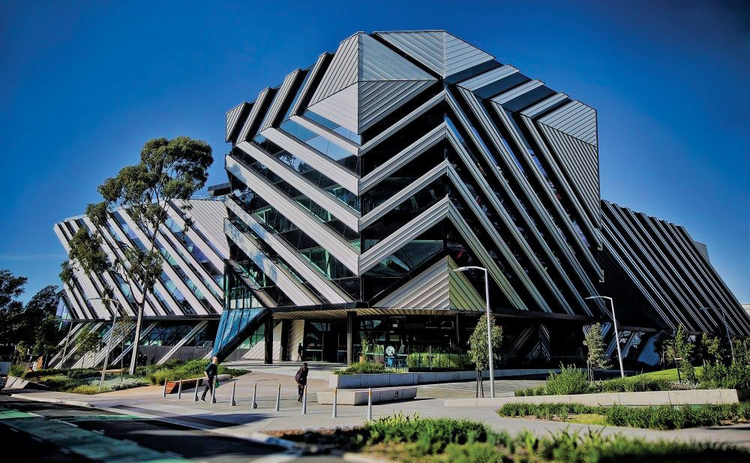
- Rank: 4 in Australia for Engineering
- Courses Offered: Mechanical Engineering, Aerospace Engineering, Environmental Engineering
- Eligibility: Completion of high school with strong marks in math and sciences
- IELTS Required: Yes, a minimum score of 6.5
- Acceptance Rate: 75%
- Average Cost: AUD 39,500 per year
- Location: Melbourne, Victoria
- Hostel Provided: Yes
- Average CTA: AUD 48,000 per year
- ROI: High
- GRE Required: No
- Indian Students Allowed: Yes
- Scholarships: Offers a variety of merit-based and need-based scholarships
- Student Visa Required: Yes, subclass 500
- Description: Monash is renowned for its innovative engineering programs and a diverse, inclusive academic community.
University of Sydney
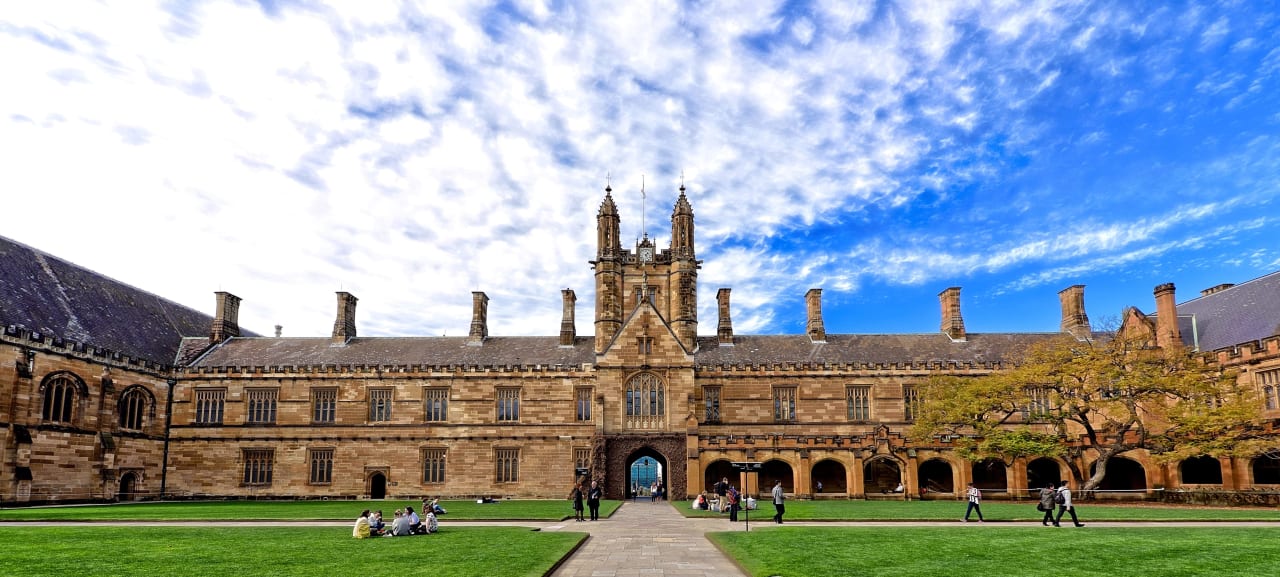
- Rank: 5 in Australia for Engineering
- Courses Offered: Civil, Electrical, Biomedical, and Software Engineering
- Eligibility: Minimum high school GPA of 3.0, prerequisite courses in math and science
- IELTS Required: Yes, a minimum score of 6.5
- Acceptance Rate: 60%
- Average Cost: AUD 42,000 per year
- Location: Sydney, New South Wales
- Hostel Provided: Yes
- Average CTA: AUD 53,000 per year
- ROI: Very good
- GRE Required: No
- Indian Students Allowed: Yes
- Scholarships: Significant financial aid options for international students
- Student Visa Required: Yes, subclass 500
- Description: The University of Sydney is recognized for its comprehensive engineering disciplines and strong emphasis on research.
University of Queensland
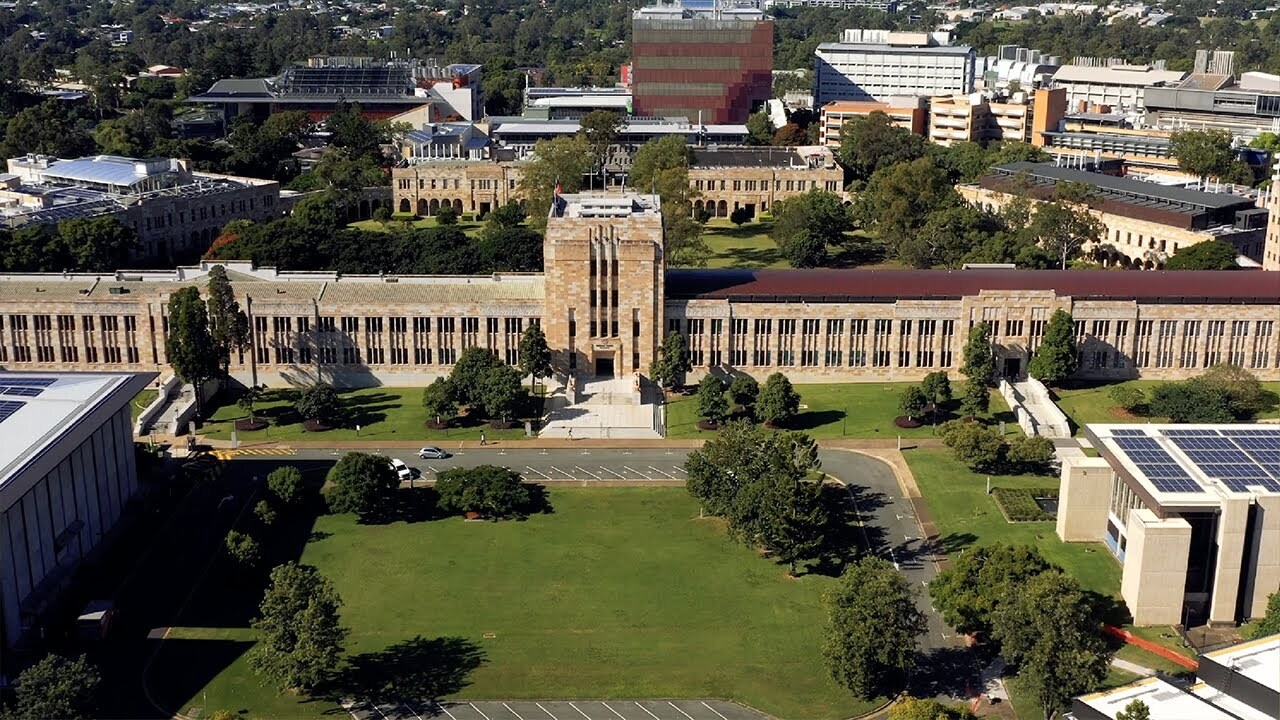
- Rank: 6 in Australia for Engineering
- Courses Offered: Chemical, Mechanical, Environmental, and Mining Engineering
- Eligibility: High school diploma with strong performance in relevant subjects
- IELTS Required: Yes, a minimum score of 6.5
- Acceptance Rate: 63%
- Average Cost: AUD 37,000 per year
- Location: Brisbane, Queensland
- Hostel Provided: Yes
- Average CTA: AUD 49,000 per year
- ROI: Good
- GRE Required: No
- Indian Students Allowed: Yes
- Scholarships: Scholarships available for both domestic and international students
- Student Visa Required: Yes, subclass 500
- Description: Known for its robust research programs and a strong focus on sustainable engineering solutions.
Curtin University
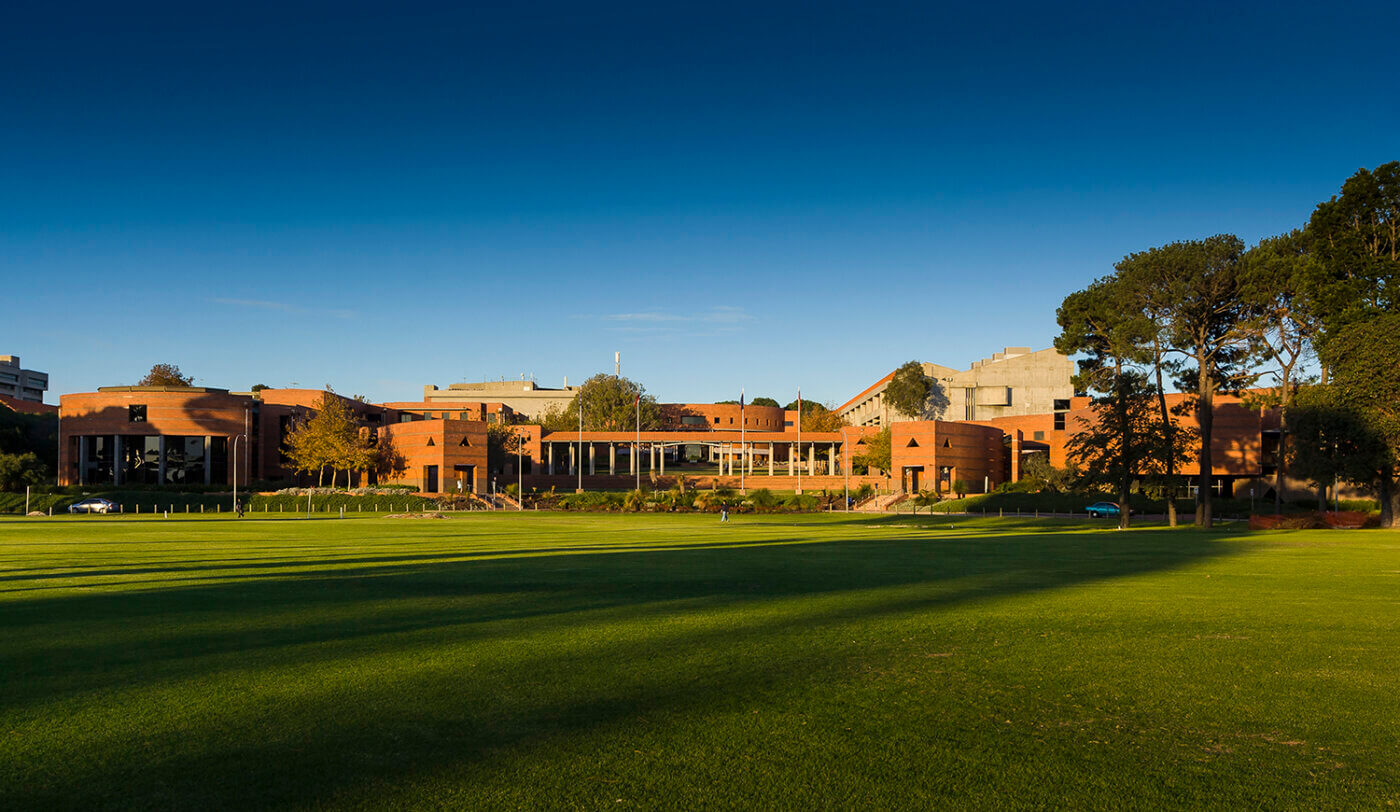
- Rank: 7 in Australia for Engineering
- Courses Offered: Petroleum Engineering, Civil and Construction Engineering, Mechatronics
- Eligibility: High school certificate with relevant subjects, good academic standing
- IELTS Required: Yes, a minimum score of 6.0
- Acceptance Rate: 70%
- Average Cost: AUD 35,000 per year
- Location: Perth, Western Australia
- Hostel Provided: Yes
- Average CTA: AUD 46,000 per year
- ROI: Very good
- GRE Required: No
- Indian Students Allowed: Yes
- Scholarships: Various scholarships for engineering students
- Student Visa Required: Yes, subclass 500
- Description: Curtin is highly regarded for its practical and industry-oriented approach to engineering education.
RMIT University

- Rank: 8 in Australia for Engineering
- Courses Offered: Aerospace Engineering, Mechanical Engineering, Electrical Engineering
- Eligibility: Successful completion of high school with required subjects
- IELTS Required: Yes, a minimum score of 6.5
- Acceptance Rate: 80%
- Average Cost: AUD 36,000 per year
- Location: Melbourne, Victoria
- Hostel Provided: Yes
- Average CTA: AUD 47,000 per year
- ROI: High
- GRE Required: No
- Indian Students Allowed: Yes
- Scholarships: Numerous scholarships targeting different student groups, including international
- Student Visa Required: Yes, subclass 500
- Description: RMIT stands out for its focus on technology and design, integrating the latest industry practices into its curriculum.
University of Adelaide
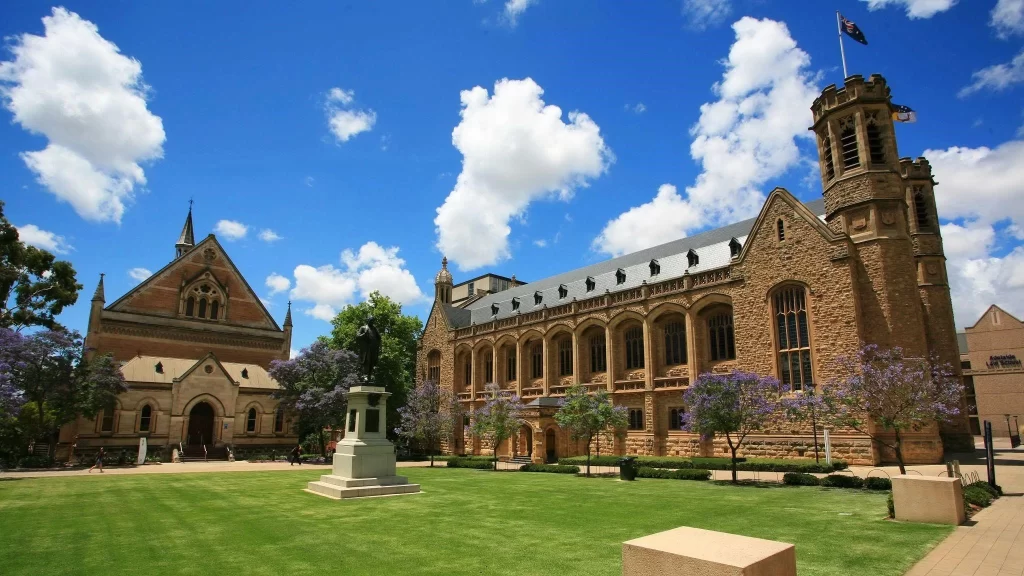
- Rank: 9 in Australia for Engineering
- Courses Offered: Chemical Engineering, Petroleum Engineering, Environmental Engineering
- Eligibility: High school diploma with emphasis on math and sciences
- IELTS Required: Yes, a minimum score of 6.5
- Acceptance Rate: 68%
- Average Cost: AUD 38,000 per year
- Location: Adelaide, South Australia
- Hostel Provided: Yes
- Average CTA: AUD 50,000 per year
- ROI: Good
- GRE Required: No
- Indian Students Allowed: Yes
- Scholarships: Wide range of scholarships for engineering students
- Student Visa Required: Yes, subclass 500
- Description: Known for its commitment to innovation and a strong research culture in engineering disciplines.
Queensland University of Technology (QUT)

- Rank: 10 in Australia for Engineering
- Courses Offered: Civil, Mechanical, and Robotic Engineering
- Eligibility: High school completion with a focus on STEM subjects
- IELTS Required: Yes, a minimum score of 6.5
- Acceptance Rate: 85%
- Average Cost: AUD 33,000 per year
- Location: Brisbane, Queensland
- Hostel Provided: Yes
- Average CTA: AUD 44,000 per year
- ROI: Very good
- GRE Required: No
- Indian Students Allowed: Yes
- Scholarships: Several scholarships are available, particularly for engineering innovation and international collaborations
- Student Visa Required: Yes, subclass 500
- Description: QUT is renowned for its real-world approach to education, focusing on preparing students for immediate industry integration and practical engineering solutions.
Each university provides a supportive environment designed to foster student growth and innovation. Programs are carefully structured to ensure that graduates are not only academically equipped but also ready to meet industry demands. Prospective students are encouraged to reach out to university counselors via university websites or IDP Fastlane work to discuss their options, entry requirements, and scholarship opportunities.
Engineering Courses Provided by Australian Universities
1.Civil Engineering
- Focus Areas: Infrastructure development, construction management, urban planning, and environmental sustainability.
- Key Universities: University of New South Wales, University of Melbourne, Monash University.
2. Mechanical Engineering
- Focus Areas: Design and manufacturing of machinery, robotics, vehicle systems, and energy systems.
- Key Universities: University of Sydney, RMIT University, Queensland University of Technology.
3. Electrical Engineering
- Focus Areas: Power generation and distribution, telecommunications, electronics, and control systems.
- Key Universities: University of New South Wales, University of Melbourne, University of Queensland.
4. Chemical Engineering
- Focus Areas: Chemical production, process engineering, materials science, and biotechnology.
- Key Universities: University of Melbourne, Monash University, University of Sydney.
5. Software Engineering
- Focus Areas: Software development, computer systems, artificial intelligence, and app development.
- Key Universities: University of Melbourne, University of Sydney, Australian National University.
6. Aerospace Engineering
- Focus Areas: Aircraft and spacecraft design, aerodynamics, avionics, and propulsion systems.
- Key Universities: RMIT University, University of Queensland, Monash University.
7. Biomedical Engineering
- Focus Areas: Medical devices, imaging systems, prosthetics, and healthcare solutions.
- Key Universities: University of New South Wales, University of Sydney, Queensland University of Technology.
8. Environmental Engineering
- Focus Areas: Sustainable development, environmental protection, waste management, and water resources.
- Key Universities: University of Queensland, Monash University, University of New South Wales.
9. Mining Engineering
- Focus Areas: Resource extraction, mine design, geotechnical engineering, and resource management.
- Key Universities: University of Western Australia, Curtin University, University of Queensland.
10. Marine Engineering
- Focus Areas: Shipbuilding, marine propulsion systems, offshore engineering, and marine environmental protection.
- Key Universities: Australian Maritime College (University of Tasmania), University of New South Wales, University of Adelaide.
11. Petroleum Engineering
- Focus Areas: Oil and gas extraction, reservoir management, drilling technologies, and petroleum economics.
- Key Universities: University of Adelaide, Curtin University, University of New South Wales.
12. Robotics and Mechatronics Engineering
- Focus Areas: Automated systems, robotics applications, sensor technology, and intelligent systems design.
- Key Universities: University of Melbourne, University of Sydney, Swinburne University of Technology.
13. Renewable Energy Engineering
- Focus Areas: Solar, wind, and hydro energy systems, energy efficiency, and sustainable power solutions.
- Key Universities: University of New South Wales, Australian National University, University of Melbourne.
14. Telecommunications Engineering
- Focus Areas: Network infrastructure, wireless communication, satellite systems, and digital signal processing.
- Key Universities: University of New South Wales, RMIT University, University of Melbourne.
Schedule Your Expert Call Now:
Ready to navigate the college application process with ease? Schedule a call with our mentor at your convenience. We’re here to offer personalized solutions and expert guidance.
Bachelor of Engineering in Australia
What is a Bachelor of Engineering?
BE or BEng is an undergraduate degree that provides students with basic engineering concepts. It is meant to be accomplished in three to five years. A bachelor’s degree in engineering will serve as the foundation for every professional engineering position and further education. Since the Bachelor’s program is both well-rounded and well-thought-out, student engineers will gain an understanding of the theoretical and practical foundations essential to begin working.
Specializations in Bachelor of Engineering
In addition, there is a specialized specialty in Bachelor of Engineering in Australia because every person demonstrating their career interests and fields of study has their own specialty. Thus one can major in some of the most popular fields of engineering, namely:
- Civil engineering – which majors in infrastructure and construction, from bridges to skyscrapers
- Mechanical engineering – which majors in the design and manufacture of mechanical systems and processes
- Electrical engineering, which relates to the fields of electricity and electronics
- Software engineering – one of the newest fields that opens up students’ eyes to the digital revolution of technology to prepare them to design quality software systems and applications
- Aerospace engineering which also majors design of aircraft and spacecraft
- Bioinformatics engineering. This field merges biology with computer science & information technology to analyze and interpret biological data.
Therefore, every specialization in Bachelor of Engineering in Australia aims to teach how to face challenges in the future job life.
Top 10 Engineering Colleges in Australia
Australia is home to some of the world’s leading engineering colleges, known for their high academic standards and excellent graduate outcomes. The top engineering colleges include:
- University of Melbourne
- Australian National University (ANU)
- University of New South Wales (UNSW Sydney)
- University of Sydney
- Monash University
- University of Queensland
- University of Adelaide
- UNSW Sydney
- Curtin University
- University of Technology Sydney
The aforementioned institutions are collegiate providers in the engineering sector and are characterized by their robust curricula and vibrant research set up. These universities are also frequently among the world’s best universities in the QS World Rankings.
Study Options for International Students
Australia has a wide array of student study options with a focus on international students. These include:
- Full Degree Programs: These programs cover engineering courses from bachelor’s to doctoral levels.
- Exchange Programs: Students are allowed to study part of their degree in Australia and their home university will acknowledge their study credits.
- Short Courses and Diplomas: They are keen on students seeking more skills or knowledge within a short period.
The System is structured to facilitate the integration of international students into the Australian educational system and culture. Hence, Australia is a top study destination for students.
Entry Requirements
Before being admitted to Bachelor of Engineering programs offered by Australian universities, there is a set of academic and language requirements. They include:
- Academic Background an adequate academic background that is based on relevant math and science knowledge
- English language proficiency that should be evidenced by IELTS or TOEFL results
- Standardized Tests completion of standardized tests, such as SAT or ACT, in some cases.
Master of Engineering in Australia
What is a Master of Engineering?
A Master of Engineering is a postgraduate specialization course focusing on graduates’ technical expertise. The master’s degree spans between one to two years and is suited for learners seeking to acquire more knowledge and professional skills, including those in management roles. Ultimately, it is intended to develop graduate skills acquired during their undergraduate degree to facilitate exposure to more engineering complex issues or leadership roles in their sector.
Specialization of Master of Engineering
Master of Engineering degree has many specialization options, each with units of study designed to further develop students’ knowledge and competency designed for their professional to embed various unique skills to tackle technical challenges and innovation across its specialized sector. Some of the specialization areas include:
- Aerospace Engineering: it focuses on aircraft and spacecraft development and maintenance
- Biomedical Engineering: the design and creation of medical devices and diagnostics through the use of engineering principles in medical sciences.
- Environmental Engineering: it utilizes principles of engineering to address environmental challenges such as water management and sustainability.
- Mechatronic Engineering: it combines mechanical, electrical, and computer engineering to create smarter systems and automation.
- Mining Engineering: it addresses mineral extraction and processing.
- Telecommunications Engineering: It deals with systems communication across a large distance among many other specializations across the engineering field.
Top Universities for Master of Engineering in Australia
Australia hosts some of the world’s premier institutions for engineering studies, recognized globally for their academic excellence and research contributions. The best universities offering Master of Engineering degrees include:
- University of Melbourne
- University of New South Wales (UNSW)
- University of Queensland
- Monash University
- University of Sydney
- Curtin University
These universities not only provide top-tier educational programs but also offer strong industry connections and opportunities for practical experience.
Cost of Studying and Scholarships
The investment in a Master of Engineering program depends on the university and specialization. However, the average cost fluctuates, depending on the status of the institution and program duration. To finance this budget:
- Selection: Universities and organizations often provide selection depending on performance and selection or need, and they help reduce the financial burden.
- Sponsorships: Some firms sponsor promising students in return for future employment commitments.
- State and non-government financing Agree: some universities and private firms can cope with a large fee.
- State and non-government financing: Sometimes students are eligible for selection from certain fields of study or from certain backgrounds.
Prospective M. Eng students are encouraged to exhaust their aid options by first working with their university’s financial assistance office and checking official university websites for the most recent details on scholarship and expense mixtures.
FACT
Engineering graduates in Australia are among the highest paid in the Asia-Pacific region.
Job Opportunities and Salary Packages in Australia
Master of Engineering graduates in Australia is highly sought for their advanced knowledge and the reputation Australia has in engineering education. Opportunities may include:
- Construction and Infrastructure
- Technology and Software Development
- Energy and Utilities
- Manufacturing and Design
Engineering professionals in Australia can expect competitive salary packages, which reflect their high level of expertise and the demand for skilled engineers across various industries. The specific salary can vary based on the field of specialization, location, and level of experience.
Conclusion:
Studying engineering in Australia offers more than just a degree; it provides a gateway to innovative industries and high job satisfaction. With courses starting soon in 2024, now is the time to explore your options. Top universities, diverse specializations, and robust support for international students ensure that your engineering education in Australia is not only current but also globally competitive. Whether you’re planning to study civil engineering or bioinformatics, the journey begins here, promising attractive salary packages and a vibrant professional network.
Schedule Your Expert Call Now:
Ready to navigate the college application process with ease? Schedule a call with our mentor at your convenience. We’re here to offer personalized solutions and expert guidance.
FAQ’s
What engineering degrees can I pursue in Australia in 2024?
Engineering degrees in Australia include bachelor’s and master’s in fields like civil, mechanical, and software engineering.
Which are the top engineering universities in Australia for 2024?
Top universities include UNSW Sydney, the University of Sydney, and Monash University, known for their excellent engineering programs.
When do engineering courses start in Australian universities in 2024?
Courses typically start from May 6, 2024, so it’s crucial to apply early to secure a spot.
What are the entry requirements for engineering courses in Australia?
Requirements generally include a strong background in science and math, proof of English proficiency, and specific grades depending on the university.
Are there scholarships available for engineering students in Australia?
Yes, several scholarships are available, offering financial support based on academic merit or financial need.
How does the ranking affect an engineering university in Australia?
Higher-ranked universities often have better facilities, more research opportunities, and stronger global recognition, enhancing job prospects.
What specializations are popular in Australian engineering courses?
Popular specializations include mechatronics, aerospace, and mining engineering, reflecting the country’s industrial landscape.
What job opportunities are available after studying engineering in Australia?
Graduates can find opportunities in sectors like technology, manufacturing, and infrastructure, often with attractive salary packages.

You can study at top universities worldwide!
Get expert tips and tricks to get into top universities with a free expert session.
Book Your Free 30-Minute Session Now! Book a call now
















